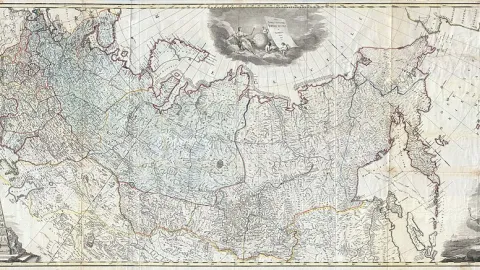ILO: EPO president Battistelli abused his power in restraining workers’ right to strike
July 13, 2021
Eight years (!) after complaints of dozens of EPO staff members against the way they were treated after having participated in strikes, a final decision in their cases is finally there: former EPO president Benoit Battistelli abused his power in various ways when and after implementing new rules in July 2013 to restrict the rights of staff members to strike. The Administrative Tribunal of the International Labour Organisation (ILOAT) made this clear in several decisions it issued last week. In two other cases the EPO has to pay high moral damages plus costs to former staff members.

Especially if measures of an authoritarian president lead to dozens of conflicts in an organisation which has immunity from jurisdiction of national courts. Even for the ILOAT it was too much at the time. In 2017, it published an exceptional document on the “difficulties caused by the number of complaints which are filed by officials against the European Patent Organisation (EPO) and which threaten the ability of the Administrative Tribunal of the ILO to serve all other organizations”.
Battistelli was succeeded in 2018 by president António Campinos and the situation seems to have improved, but social conflicts are not over at the EPO. Recent issues were reforms of education and childcare allowances, for instance. Last week the Central Staff Committee issued a paper condemning Campinos' decision to disband secretarial support for staff representation (by not replacing the last of three secretaries, who retired in May), something which had existed for thirty years, as an "attack against staff and its representation".
If conflicts lead to legal procedures, they should be dealt with in a timely manner. Not only by the ILOAT, but much more so internally. In several conflicts which started in 2013 it took the EPO appeals committees six years to come to a final conclusion. Only after such decision a complainant could go to the ILOAT.
Strike regulations
The cases 4430, 4432, 4433, 4434 and 4435 which the ILOAT published this week after its 132nd session, give a detailed insight in the way authoritarian and intimidating leadership worked in the Battistelli era, when EPO staff started to organize demonstrations and strikes.
An important element in these cases is the June 2013 decision CA/D 5/13 of the EPO’s Administrative Council, “creating a new Article 30a of the Service Regulations for permanent employees of the European Patent Office concerning the right to strike and amending the existing Articles 63 and 65 concerning unauthorised absences and the payment of remuneration. (…) Paragraph 10 of Article 30a authorises the President to lay down further terms and conditions (…) Relying on that provision, the President issued Circular No. 347 containing ‘Guidelines applicable in the event of strike’. This text entered into force on 1 July 2013, at the same time as CA/D 5/13.”
Case 4430 is centered round the issue whether Battistelli had the right to issue Circular No. 347. The ILOAT’s decision is clear: he didn’t. The reasons speak for themselves:
16. (…) A review of its provisions reveals the following:
(i) Circular No. 347, paragraph 1: there are two problems with this provision. Firstly, it travels beyond the definition in the amended Service Regulations. It cannot do so as a subordinate normative legal document (Judgment 3534). Secondly, “go slow” and “work to rule” are legitimate forms of industrial action protected by the ordinary conception of the right to strike. Accordingly, by declaring that employees engaging in these forms of industrial action did not have the “protection granted by the right to strike” as ordinarily understood, this provision violated the right to strike.
(ii) Circular No. 347, paragraph 2: by imposing a minimum of 10 per cent of employees who may call for a strike, the Circular violated the right to strike of any employee who, in combination with others, may wish to strike where the total number of employees is less than 10 per cent.
(iii) Circular No. 347, paragraph 3: if the class who have a right to vote on whether the strike should start extends beyond (and potentially well beyond) the employees who wish to strike, then that wider class has a capacity to veto the strike. This problem is compounded by the percentages (40 per cent of employees and 50 per cent of voters) at the conclusion of this provision. Additionally, the requirement that the vote be conducted by the Office violated the right to strike. Employees themselves should be able to make arrangements for the vote (…).
(iv) Circular No. 347, paragraph 4: the time limit placed on the duration of strike violated the right to strike. Striking staff should be able, themselves, to determine the length of the strike.
17. Having regard to the aforementioned violations of the right to strike, which infect Circular No. 347 in its entirety, the Circular is unlawful and should be set aside.”
The complainants in the case were awarded moral damages in the amount of 2000 euros. The EPO also had to pay each complainant 800 euros costs.
Case 4434
Case 4434 was equally negative for Battistelli. The ILOAT judged that, by refusing to hold a ballot for a strike (IFLRE) in November 2013, he violated the rules he had himself imposed in his – unlawful - Circular 347.
“18. The complainants are entitled to moral damages for the decision of the President not to hold a ballot for a strike they and others called for in accordance with the provisions of Circular No. 347, which constituted an abuse of power in that the President purported to exercise a power which he did not have. The President’s conduct involved a significant and unilateral derogation of the complainants’ right to strike even as arising under the materially constraining scheme in Circular No. 347 and CA/D 5/13. These moral damages are assessed in the sum of 6000 euros for each complainant.
19. The complainants are entitled to costs assessed in the sum of 8000 euros collectively.”
In a similar case 4432 concerning another banned strike ballot (UNITY), a complainant was entitled to 8000 euros as moral damages as well.
Case 4433
Cases 4433 and 4435 show how the EPO management excessively reduced the salaries of staff members who participated in strikes. In case 4433, a lawfully SUEPO (trade union) called strike was illegally considered as unauthorised absence and not as a day of strike. The complainant’s salary was punitively deducted by 1/20th instead of 1/30th. In case 4435, the complainant’s salary was also deducted by 1/20th even for strike days complying to the illegal EPO strike regulations. Apart from that, the ILOAT qualified a July 2013 letter of Elodie Bergot, principal director human resources, warning that future unauthorised absences would lead to disciplinary action “involved an attempt to stifle, by threat, the exercise of the lawful right to strike”.
Some quotes of Case 4433: “On 2 July 2013 the picket strike announced by SUEPO took place. On 9 July 2013 the complainant, who had participated in the strike, received a letter from the Principal Director of Human Resources informing him that, as the industrial action on 2 July did not comply with the new rules, his absence on that day was considered to have been unauthorised and a deduction from his pay would be made accordingly. (…)”
“10. (…) the definition of strike in Article 30a is descriptive of conduct (…) and does not raise for consideration whether that conduct arose as a result of the procedures for calling a strike being followed. (…) What he did was engage in a lawful activity albeit one that resulted in a deduction from salary. It should not have been stigmatised as an unauthorised absence from work and a deduction from salary made on that basis. The decision to make the deduction on the basis given was unlawful. Accordingly it should be set aside.
11. The second and alternative basis on which the deduction was unlawful, arose from the erroneous view of the EPO that there had been no lawful strike because there had been no vote in accordance with paragraph 3 of Circular No. 347. (…) But that provision is itself unlawful (see Judgment 4430, consideration 16). That is because it significantly derogated from the fundamental right to strike, recognised by this Tribunal as something employees are lawfully entitled to do (…).”
“13. Particularly in the context of the organisation having adopted highly contentious provisions concerning strikes including a requirement that all staff (or sections of them) had to vote on the question of whether the strike should take place, the declaration [by the Principal Director Human Resources] that disciplinary action would necessarily be taken for an unauthorised absence which the organisation considered was not a strike, fairly clearly would have a political impact in the broadest sense of the expression. (…)
14. (…) the threat just referred to did involve an attempt to intimidate the complainant, aggravated by the adoption by the EPO of an erroneous interpretation of its own normative legal documents. It involved an attempt to stifle, by threat, the exercise of the lawful right to strike. The complainant is, for this, entitled to moral damages assessed in the sum of 4000 euros.”
Case 4435
The complaint in Case 4435 was that the EPO deducted more money for absence due to participation in a strike (1/20 part of the monthly salary per day) than for absence due to other cases. Also here, the ILOAT found the EPO management was wrong and used the deduction as a means to punish participants in strikes.
“13. (…) Article 65(1)(c) together with Article 65(1)(d) (adopting the 1/20 method) stand apart from the method of calculating salary deductions for other purposes (the 1/30 method).
14. The question that immediately arises, in the Tribunal’s view, is whether Article 65(1)(c) is punitive. In its pleas, the EPO acknowledges that the 1/30 method would still be used to calculate salary deductions for other authorized absences which include unpaid leave on personal grounds, parental leave and family leave. (..)”
“15. Moreover, if in any respect, the deduction for working days on strike could materially exceed, in aggregate, the amount a staff member would have earned had they worked, then the provision is punitive in character. The complainant has demonstrated this is so by reference to an example involving a strike for an entire month where the number of working days for that month exceeds 20 (a common occurrence). In such a circumstance, the amount deducted for working days on strike for that month by application of Article 65(1)(c) would exceed the monthly salary payable for that month.
16. While the following, of itself, does not establish Article 65(1)(c) is punitive, it is nonetheless the position that the amount deducted for each day of unauthorised absence (which is, prima facie, misconduct) is the same as the amount deducted for each day a member of staff is on strike, which is entirely lawful conduct. This lends support to a conclusion that Article 65(1)(c) is punitive.”
“For the above reasons,
1. The EPO shall reimburse the complainant the amounts deducted for the full or part working days on which he was on strike in 2013 and 2014, with interest at 5 per cent per annum, less the amounts which could have been deducted under the Service Regulations as they existed before the amendments made by CA/D 5/13.
2. The EPO shall pay the complainant 800 euros costs.”
Case 4427
Other ILOAT decisions this week display how badly some staff members were treated. In Case 4427, dating back to 2008 (!), the EPO had to pay 50.000 Swiss francs in moral damages plus costs in the amount of 8000 Swiss francs.
“9. (…) the Vice-President provided no comparison, in the impugned decision of July 2013, between the complainant’s duties in his examiner’s post and the complainant’s grade. Neither was there an attempt to explain that in transferring the complainant, the EPO showed due regard, in both form and substance, for his dignity, particularly by providing him with work of the same level of responsibilities as he performed in his previous post and matching his qualifications (…). In the second place (…) the Vice-President did not provide an explanation to counter the IAC’s conclusion that the EPO’s argument that the complainant was transferred to DG1 because it needed staff was completely unconvincing in the complainant’s case. Neither did the Vice-President explain how the rotation policy applied to the complainant given that his transfer was not on loan and without time limit. Moreover, in light of the majority’s comparison of the relative interests of the EPO and the complainant in the transfer and its conclusion that the transfer was not in the interest of either party, it was not enough for the Vice-President to disagree merely by accepting the position of the minority of the IAC on the issue. Rather, it was necessary for him to explain why he disagreed with the opinion of the majority.
10. The complainant was entitled to a more complete explanation for his transfer from the administrative position which he held for about 16 years to what was effectively an entry level examiner’s position, albeit retaining his grade. (…)
11. The complainant’s contention that the decision to transfer him to the examiner’s position violated the EPO’s duty of care and his dignity is well founded given the indignity and humiliation he suffered by virtue of his transfer from the administrative post that he held for some 16 years to what was, in effect, an entry level examiner’s position. The Tribunal has consistently stated, in Judgment 4240, consideration 16, for example, that an organization must carefully take into account the interests and dignity of staff members when effecting a transfer to which the staff member concerned is opposed. It should have been obvious to the EPO that the complainant’s responsibilities in the new post were significantly different from those responsibilities which were attached to his previous post and were not objectively comparable with his previous responsibilities. Moreover, there is no evidence to show that the complainant’s legitimate objections to the proposed transfer were properly addressed by the Administration before he was transferred.”
In Case 4415, the ILOAT rules a former EPO staff member, who had been dismissed in 2017 without taking into account his medical condition was entitled to 80.000 euros as material damages and 40.000 euros as moral damages.
You may also like















EPOman
Beautiful confirmation of the Battistelli abuses in the EPO. However, the big question is what is going to happen next. Normally the respective Circulars should be declared null and void and the office should redeem the money charged illegally from the staff. Mr. Battistelli is not in the EPO any more so he cannot be held to account but there are other enablers that could, and should be made responsible. The first matter is legal, the second one moral, so I expect at least the first one to be solved satisfactorily. I´m very curious to see how this plays out ...
Eponia
Guess why Karlsruhe just rejected a complaint in the UPC proceedings by a company who claimed they could not get a "review" in court. EPO is above the Law, cannot bé brought to court, and the German judges are protecting them.
Charles
Justice delayed is justice denied :(
Attentive Observer
That Napoleon 4th abused his power in various ways should not come as surprise. His attacks on staff representatives have also been criticised in various cases before the ILO-AT and Union members had to be re-integrated or restored in their previous salary levels. You just have to remember the way Napoleon 4th blatantly disregarded the separation of powers in that he refused a member of the boards to access the building to realise that it was not only in the matter of strikes that his influence was harmful. R 19/12 and G 2301/16 led to R 12a-d and to the exile of the BA to the suburbs of Munich (lease 15 years), by which not even the perception of independence of the BA was increased. We ended up with a chair of the BA who is no more than a puppet on the strings of the president. Just looking at the saga of Art 15aRPBA and G 1/21 says enough. His successor seems even worse in a lot of aspects. He has not contributed to restore social peace at the EPO in the slightest. Ironically he has decided with the help of the chair of the BA that the latter BA will come back to Building VIII. But like examiners, members of the BA will not be allocated a specific room, not even a specific desk. Examiners will be pushed into open space offices in order to squeeze as much as possible the few staff members allowed to come into the office. With his New Normal he wants an EPO 2.0 without any legal basis in the EPC as it stands. But as this representatives in G 1/21 had the nerve to say that the EPC can be amended by way of secondary legislation as has been shown in G 3/19. The next planned budget provides 6 Millions of Euros to get legal advice against the staff! All this would not have been possible without the AC's complicity. The AC should control the president and the tail should not be wagging the dog. But in Eponia everything is possible if the president wants it. But as Mao is meant to have said once: the fish rots from the head! EPO is a superb example of this!
The Green Goblin
This is what the then head of the AC and present VP5 thought of the new strike regulations: https://www.juve.de/nachrichten/namenundnachrichten/2017/12/interview-mit-epa-verwaltungschef-ernst-der-neue-muss-den-frieden-wiederherstellen